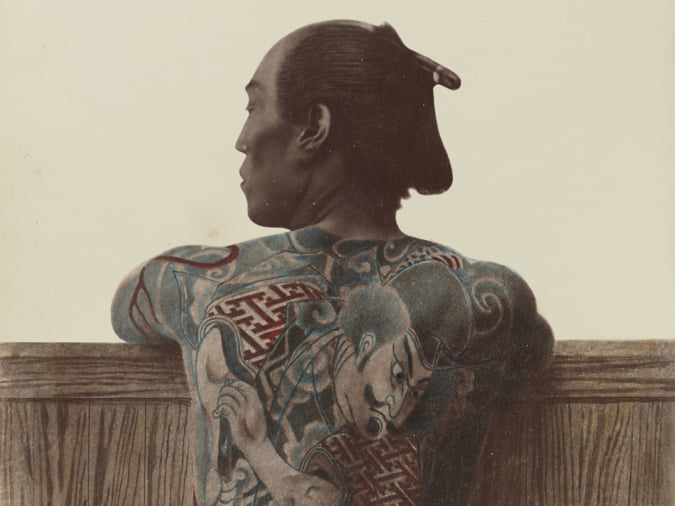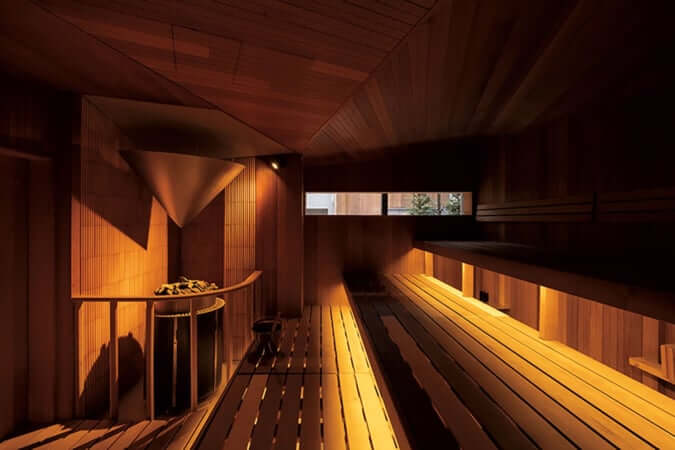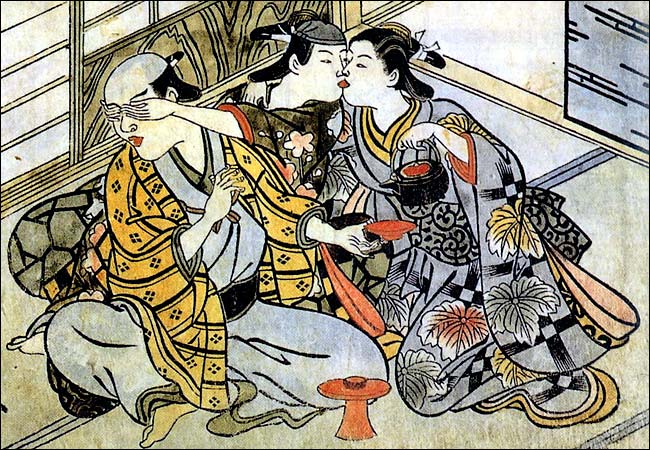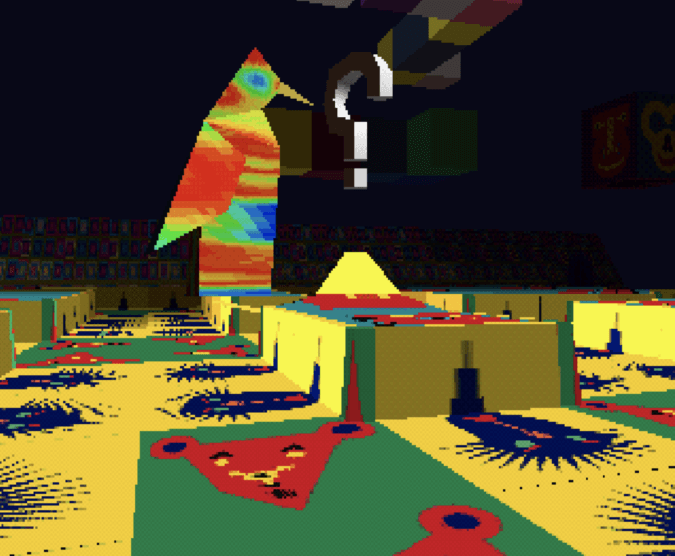Jinbocho, Tokyo’s Book District
This neighbourhood in Chiyoda-ku has become a popular centre for second-hand book stores, publishing houses and antique curiosities.
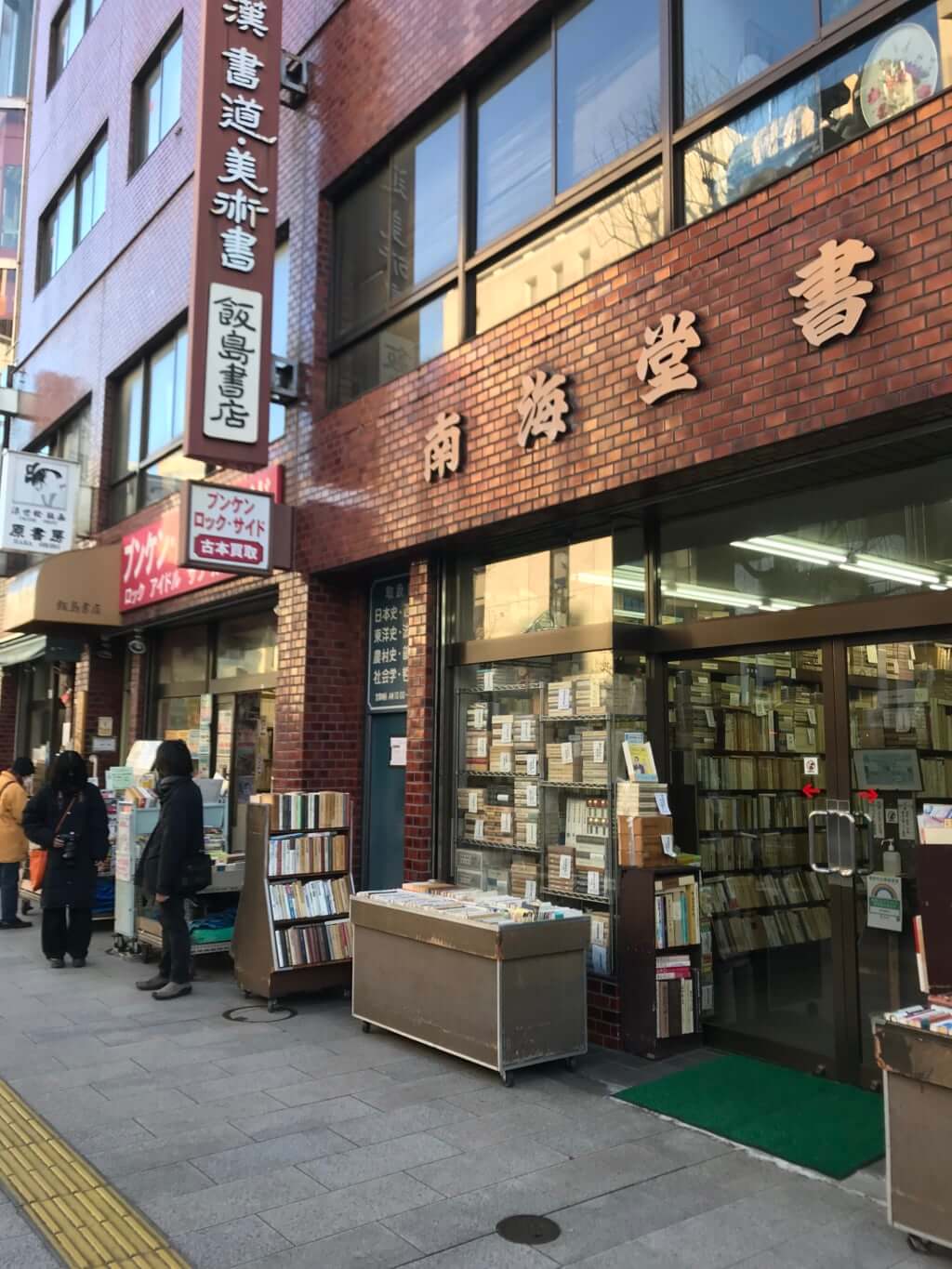
Photo by Miranda Remington.
Exiting Jinbocho station, a distinctly cultivated air drifts along a succession of stores stacked with old novels and papers. By the busy intersection of Yasukuni-dori and Hakusan-dori, where one expects the electric world of central Tokyo, Kanda-Jimbocho neighborhood, or Jinbocho, is Tokyo’s centre for vintage books, encompassing the city’s most established publishing houses and several quaint old-fashioned coffee shops.
With more than 180 bookstores, the district is a diverse centre of knowledge depositing literary rarities and a plethora of manga or magazines from decades. Jinbocho’s antique emporiums brim with history, while boutiques dedicated to art or music suggest new worlds to be discovered. Amongst the informational overload of an urban Japanese lifestyle, Jinbocho is a domain of old ‘physical’ media emanating a kind of wisdom that can only be passed down on paper.
Bookish bliss
Named after a famous samurai who lived in the area around the end of the 17th century, Jinbocho’s history begins in the Edo era. During the country’s sudden transition into modernity, bookshops gradually sprung in the area with the opening of several academic institutions at the end of the 1800s: Nihon, Meiji, Juntendo, Hosei and Senshu universities, all in walking distance. The breakout of a large fire in 1913 caused much devastation, but since a former teacher opened a bookstore there—later to become the prestigious publishing house Iwanami Shoten—Jinbocho suddenly flourished in its wake with students and intellectuals gathering amongst its cafes and libraries.
Today Jinbocho remains where the headquarters of several famous publishing houses are located, from retail book chain Tokyodo Shoten to Shueisha, the publishers of the popular manga magazine Shonen Jump. The annual Kanda Used Book Festival, taking place in the fall each year, is Japan’s biggest market for used books with shelves winding along streets to create a bibliophile’s unending heaven. A hangout spot with a significance akin to Paris’s left bank, amongst the many sides of Tokyo, Jinbocho represents bohemian wisdom pursued with a samurai’s diligence.
Jinbocho station is located in 2 Chome Kanda Jinbocho, Chiyoda City, Tokyo 101-0051, Japan. Immediately surrounding it are more than 100 book stores to leisurely explore.
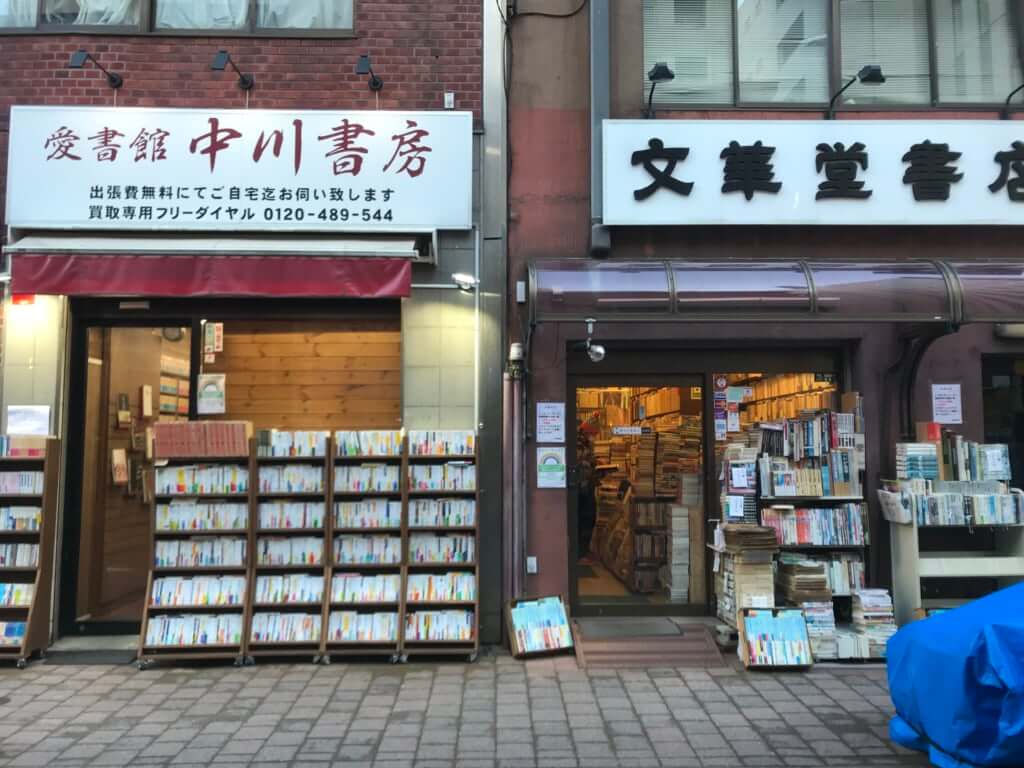
Photo by Miranda Remington.
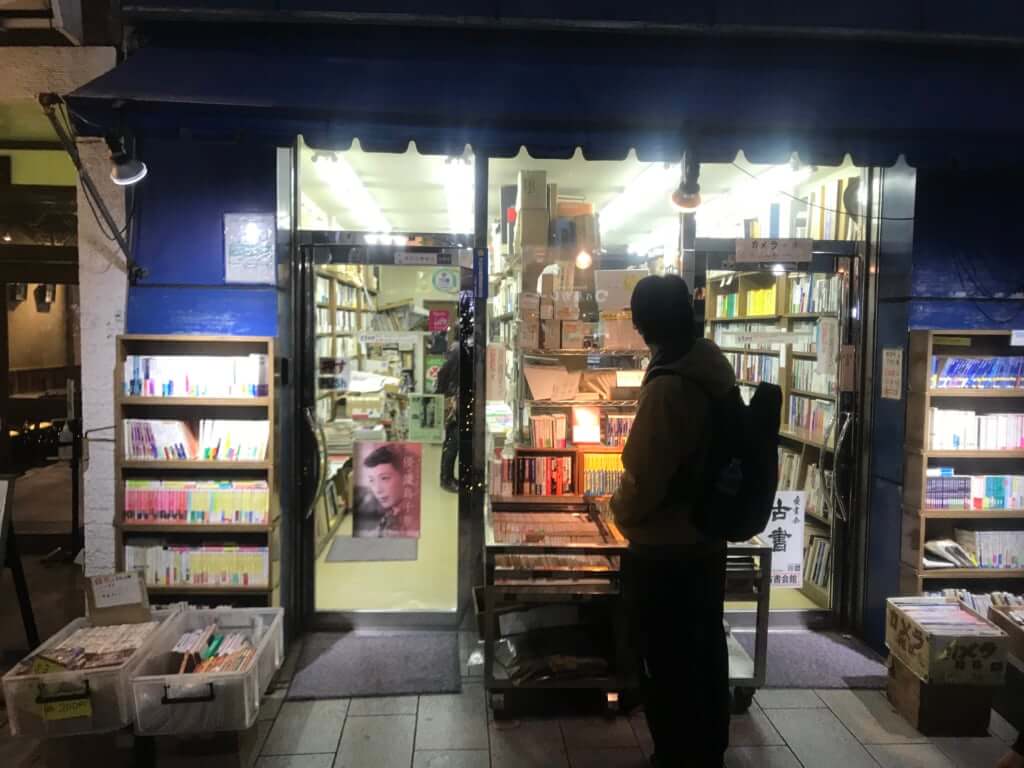
Photo by Miranda Remington.
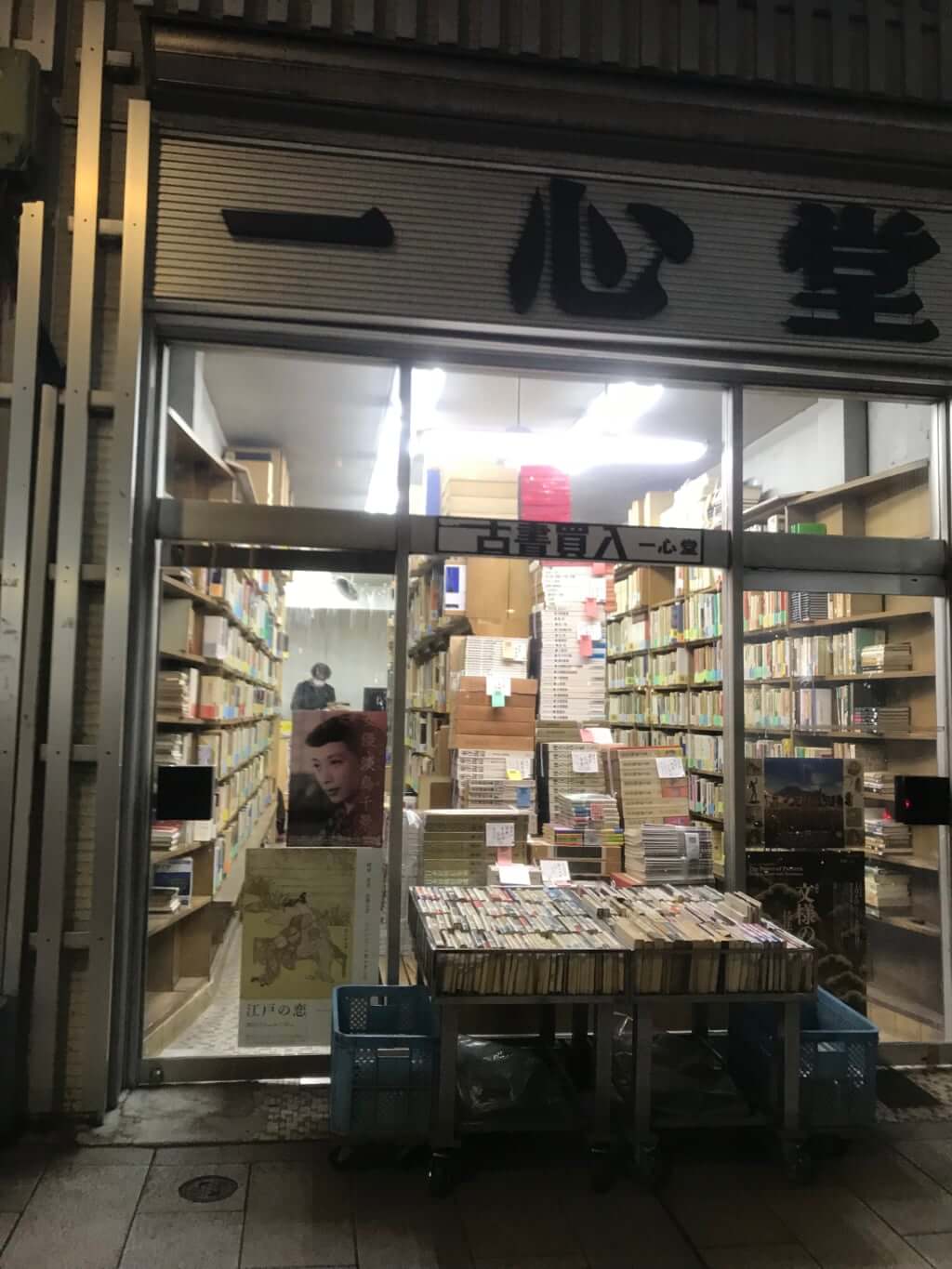
Photo by Miranda Remington.
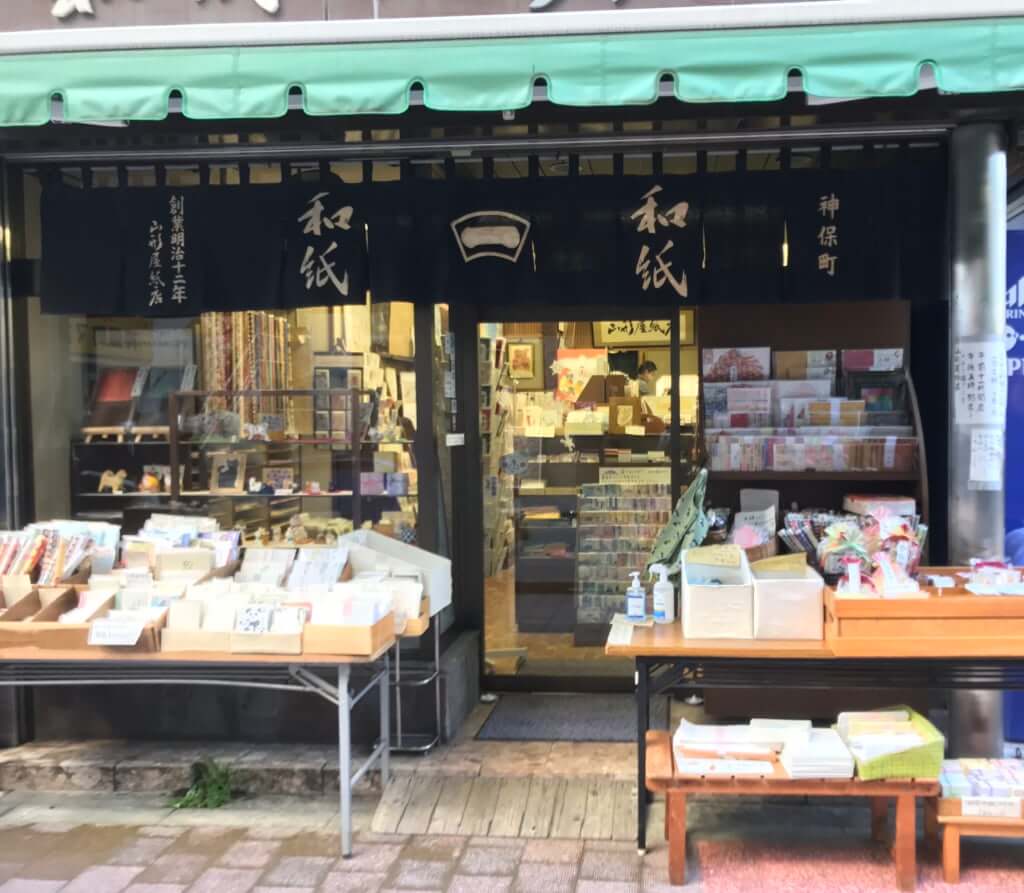
Photo by Miranda Remington.
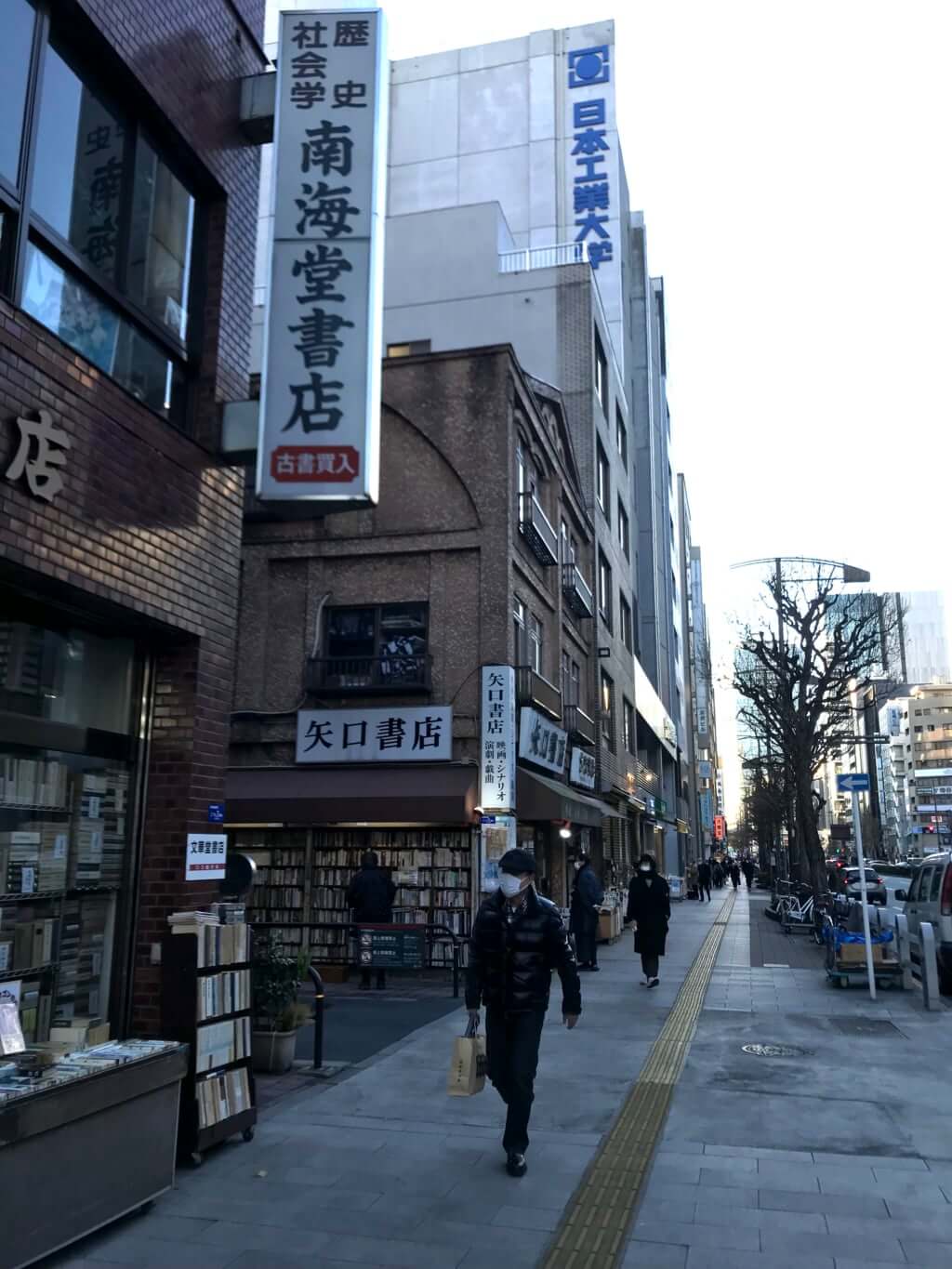
Photo by Miranda Remington.
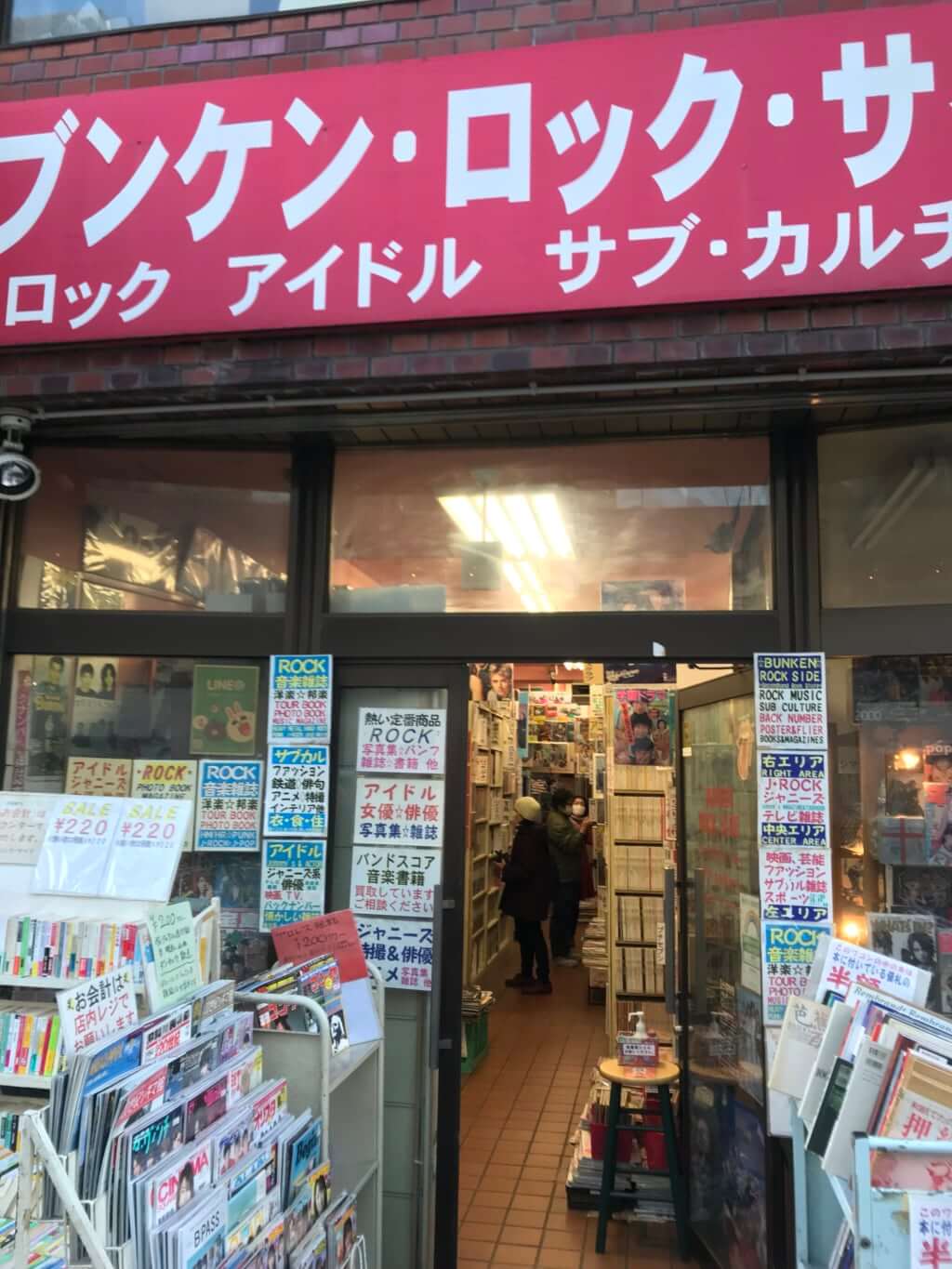
Photo by Miranda Remington.
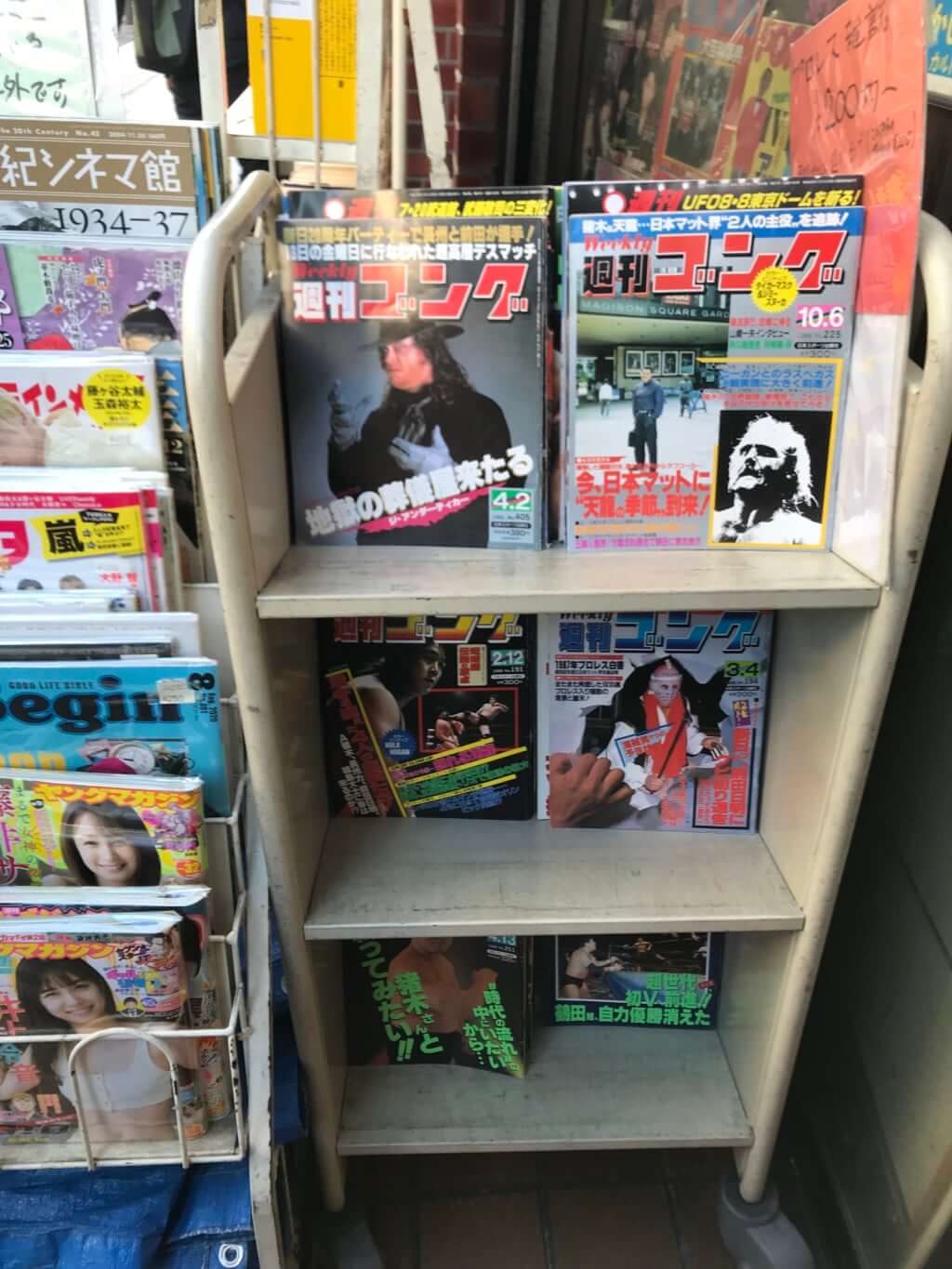
Photo by Miranda Remington.
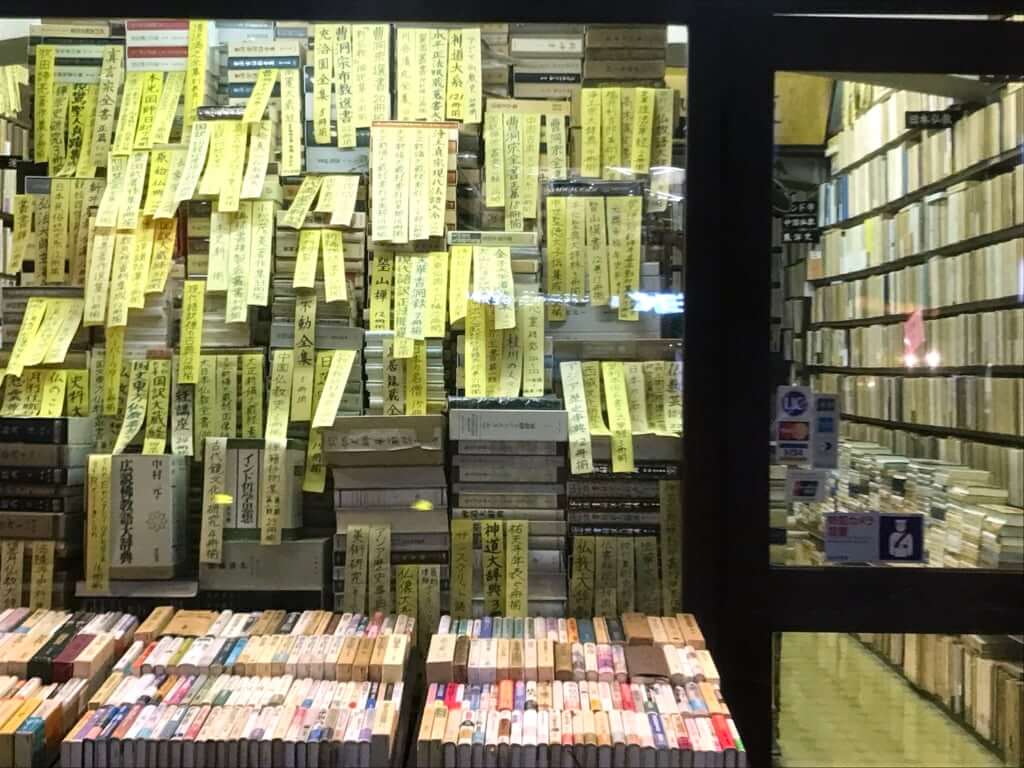
Photo by Miranda Remington.
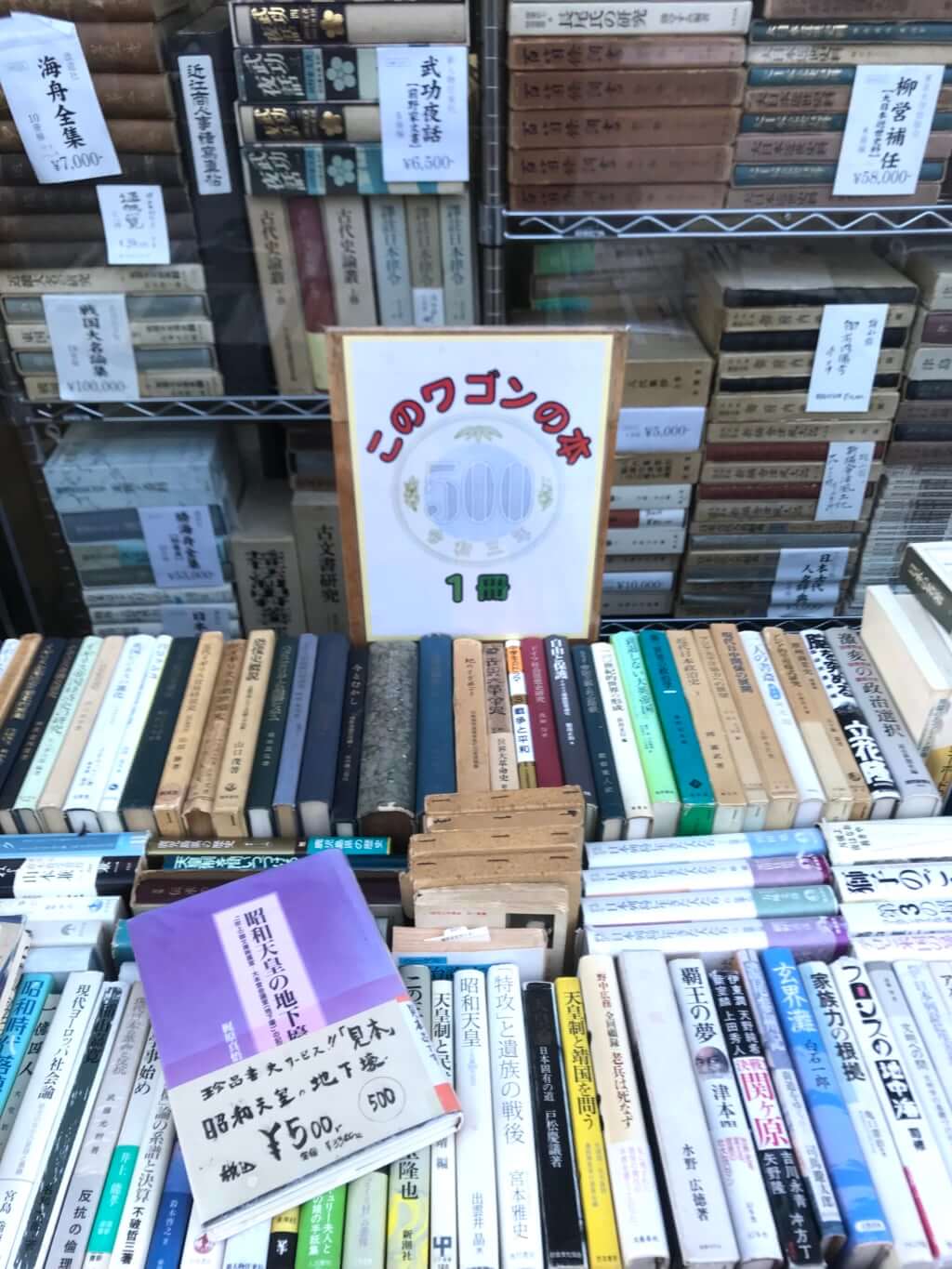
Photo by Miranda Remington.
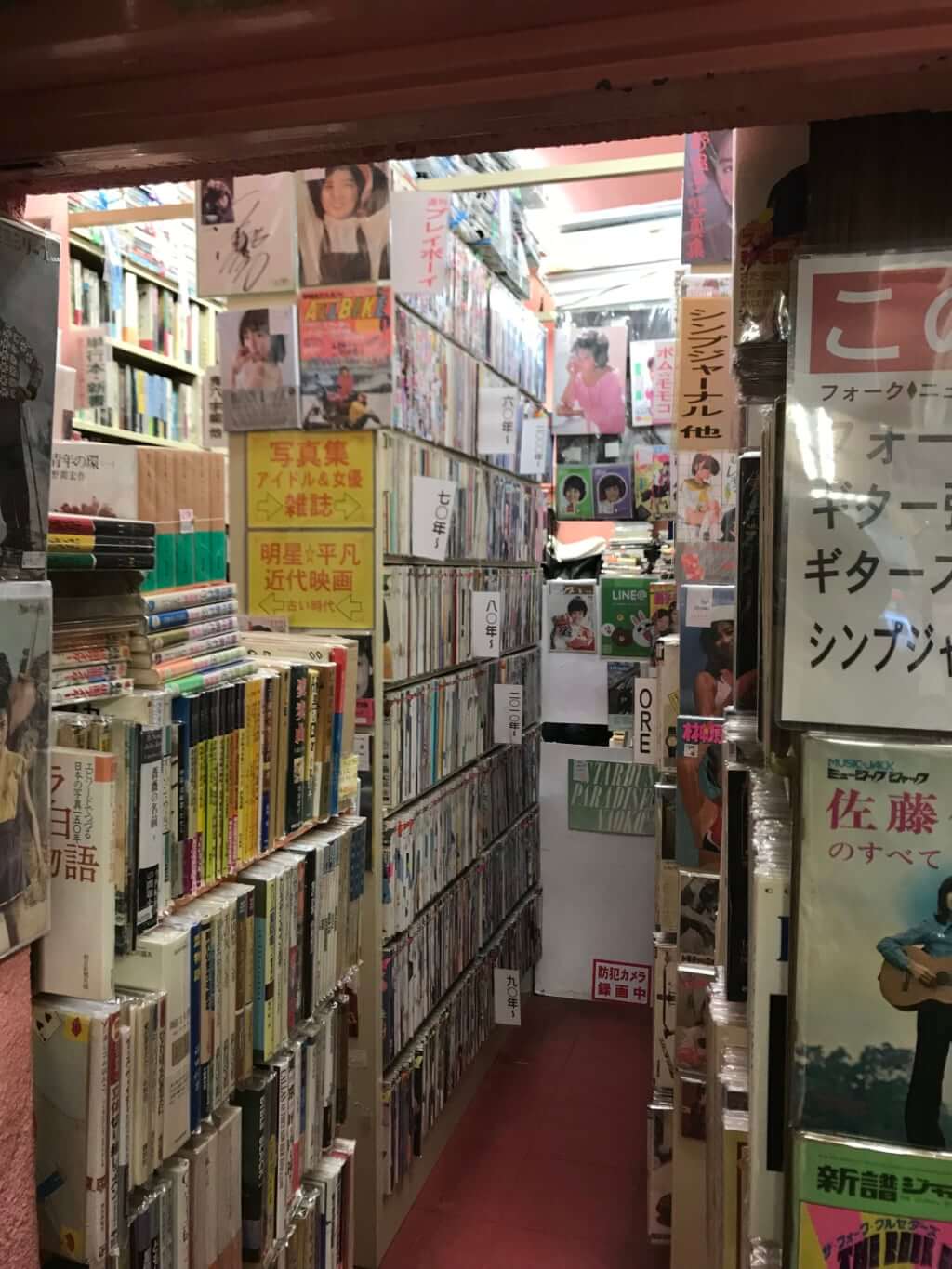
Photo by Miranda Remington.
TRENDING
-
The Tattoos that Marked the Criminals of the Edo Period
Traditional tattoos were strong signifiers; murderers had head tattoos, while theft might result in an arm tattoo.

-
Colour Photos of Yakuza Tattoos from the Meiji Period
19th-century photographs have captured the usually hidden tattoos that covered the bodies of the members of Japanese organised crime gangs.

-
The Trendiest ‘Sento’ and Saunas in Tokyo
The bath culture remains vibrant in the capital city, where public baths and saunas designed by renowned architects are continuously opening.

-
Rituals of Ancient Gay Shunga Erotica
Shunga was prolific in Japan during the Edo period, with ‘nanshoku’ referring to the depiction of homosexual erotica.

-
‘LSD: Dream Emulator’, an Avant-Garde Game Released on PlayStation
In this video game created by Osamu Sato and released in 1998, the player explores the surrealist, psychedelic environment of a dream.


